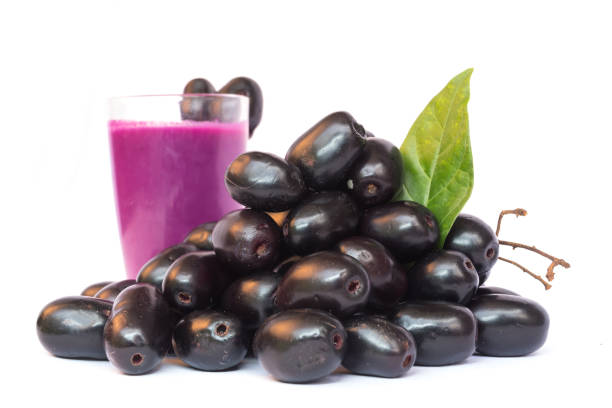The jamun, also known as the black plum or Java plum, is a tropical fruit native to India and Southeast Asia. It is a small, purple fruit with a sweet and sour taste and is often used in Indian cuisine for making jams, chutneys, and pickles. In addition to its unique flavor, the jamun is also known for its numerous health benefits. In this article, we will explore the nutritional value of jamun and whether or not it is healthy for you.
One serving of jamun (100 grams) contains approximately 50 calories, 0.5 grams of protein, and 11.5 grams of carbohydrates. It is a low-calorie and low-protein fruit, making it a suitable choice for people who are trying to lose weight or reduce their intake of animal protein.
In terms of micronutrients, jamun is a good source of vitamin C, potassium, and dietary fiber. One serving of jamun contains approximately 25% of the daily recommended intake of vitamin C, which is essential for maintaining a healthy immune system and collagen production. Potassium is an important electrolyte that helps regulate blood pressure and muscle function, and a serving of jamun contains approximately 8% of the daily recommended intake. Additionally, jamun is a good source of dietary fiber, with one serving providing approximately 3 grams, or 12% of the daily recommended intake.
So, is jamun healthy for you? The answer is yes, with some caveats. While jamun does have some health benefits, it is important to remember that it should be consumed in moderation as part of a balanced diet. Overconsumption of jamun can lead to gastrointestinal issues, such as diarrhea and stomach pain. It is also important to note that jamun is high in natural sugars, so it should be avoided or consumed in moderation by people with diabetes or who are trying to manage their blood sugar levels.
One of the most well-known health benefits of jamun is its ability to lower blood sugar levels. Studies have shown that consuming jamun can help reduce fasting blood sugar levels and improve insulin sensitivity in people with type 2 diabetes. It is believed that the high levels of antioxidants and fiber in jamun play a role in this effect.
In addition to its blood sugar-lowering properties, jamun has also been shown to have anti-inflammatory effects and may help reduce the risk of certain chronic diseases. The high levels of antioxidants in jamun, such as ellagic acid and gallic acid, may help reduce oxidative stress and inflammation in the body. Some studies have also found that consuming jamun may help lower blood pressure and improve heart health.
Jamun is also rich in polyphenols, plant compounds that have been shown to have numerous health benefits. Polyphenols have been linked to a reduced risk of cancer, cardiovascular disease, and neurodegenerative diseases, such as Alzheimer’s and Parkinson’s disease.
In conclusion, jamun is a nutritious and flavorful fruit that can be enjoyed as part of a balanced diet. Its low calorie and low protein content, as well as its high levels of vitamin C, potassium, and fiber, make it a healthy choice for people looking to maintain a healthy weight and improve their overall health. However, it is important to consume jamun in moderation, as overconsumption can lead to gastrointestinal issues and it is high in natural sugars. Despite these cautionary notes, the numerous health benefits of jamun make it a delicious and nutritious addition to any diet.

 Home
Home Health
Health Diet & Nutrition
Diet & Nutrition Living Well
Living Well More
More












